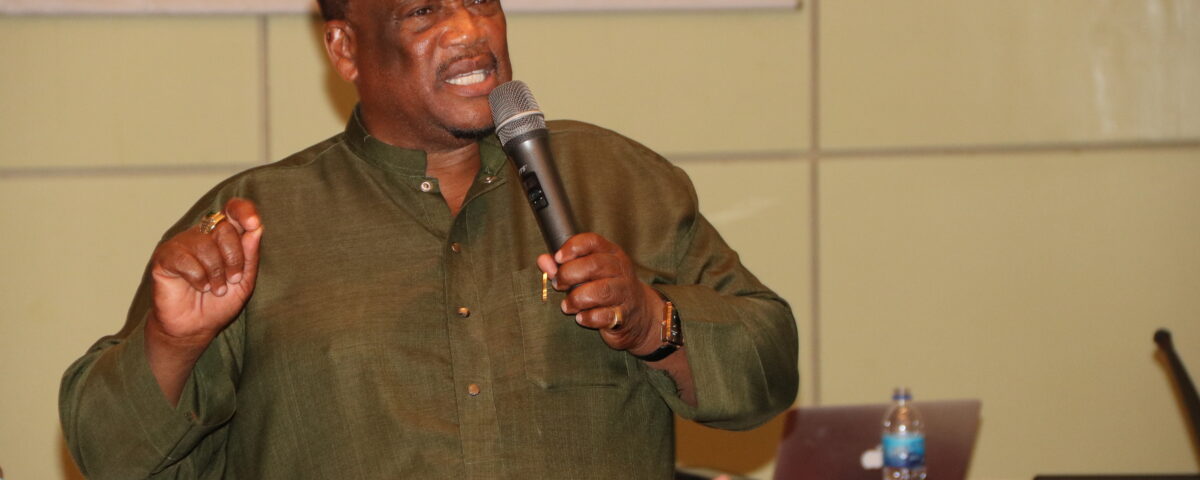Human rights are fundamental entitlements inherent to all individuals, transcending geographical and cultural boundaries. As global awareness of these rights has evolved, various regional mechanisms have emerged to address violations and promote human dignity. Among these, the African Commission on Human and Peoples’ Rights plays a crucial role in safeguarding human rights across the continent. This report synthesizes insights from a recent discussion led by Dr. Nana Busia, along with contributions from other experts, to provide an overview of the Commission’s structure, functions, and challenges within the broader context of human rights in Africa.
Dr. Nana Busia provided an insightful overview of human rights, emphasizing that these rights are inherent entitlements individuals possess from birth. He cautioned against conflating moral rights with human rights, underscoring the historical presence of human rights in Africa, which predate formal legal frameworks due to the continent’s rich cultural diversity.
Normative Human Rights Structure
Dr. Busia elaborated on the Normative Human Rights Structure, characterizing human rights as a political ideology that reflects the relationship between governmental authority and society. He illustrated this with the example of Nigeria, where violations occur not only when one individual infringes upon another’s rights but also when state agencies neglect their protective obligations. The state’s responsibility to safeguard its citizens is paramount; failure to do so constitutes a breach of human rights. He stressed that governments must translate promises—such as ensuring educational access for children under five—into tangible actions like constructing schools and compensating educators.
Historical Context of Human Rights
The origins of human rights can be traced back to philosophical debates challenging the divine right of kings, which led to the establishment of social contracts between governments and their citizens. Dr. Busia noted that socialism played a significant role in shaping contemporary human rights discourse, with World War II marking a pivotal moment in the international recognition of these rights.
Modern Human Rights System
In discussing the Modern Human Rights System, Dr. Busia referenced the 1948 UN Declaration of Human Rights, which delineates fundamental rights but lacks binding legal status, focusing instead on economic, social, and cultural dimensions.
The African Human Rights System
Another speaker highlighted the development of regional human rights charters tailored to specific cultural contexts. The African Charter on Human and Peoples’ Rights, adopted in 1981 and operational since 1986, reflects an African perspective on human rights and has been integrated into various national legal systems. The African Centre for Democracy and Human Rights Studies (ACDHRS), based in Banjul, The Gambia, was established to support this framework.
The African Charter designates states as primary duty bearers for human rights protection while allowing for implementation constraints aligned with domestic laws. To date, 54 African nations have ratified the Charter, which operates through several associated bodies, including three main mechanisms established under its auspices.
Structure and Functions of the Commission
The ACDHRS comprises eleven commissioners elected by the African Union Assembly from nominees submitted by member states. These commissioners serve six-year renewable terms and are tasked with promoting and protecting human rights through various mechanisms:
- State Reporting Procedure: Regular assessments of member states’ compliance with their obligations.
- Communication Procedure: Handling individual complaints regarding human rights violations.
- Special Mechanisms: Focused efforts on specific issues such as women’s rights, minority rights, and prevention of torture.
The ACDHRS plays a crucial role in advocacy and monitoring human rights conditions across Africa while collaborating with the African Union (AU) to submit reports and maintain observer status at international forums.
Challenges and Developments
Despite its mandate to address individual complaints of human rights violations, the Commission faces limitations in its legal authority. Notably, human rights abuses frequently arise during conflicts and transitional justice processes. In response, the Commission continues to develop “soft laws” aimed at ensuring citizenship and social protections for all Africans.


